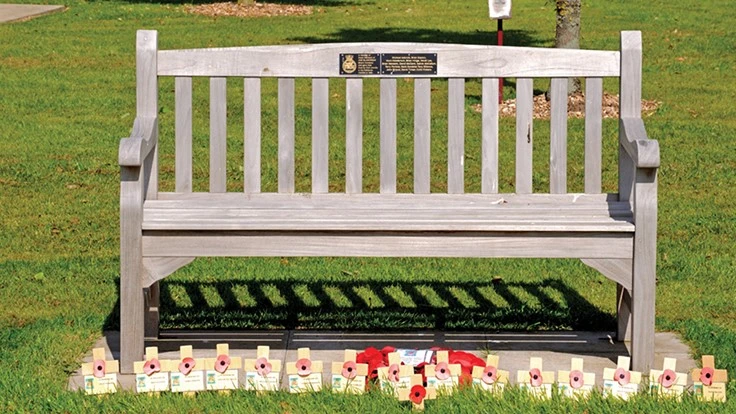
DREAMSTIME.COM

“I regret to inform you…” While I’ve only heard these words once, they still evoke sadness. Our company president died unexpectedly, and each department received “the call.” The task of informing others fell to me. Despite the fact none of us really knew her, it was a tough message to deliver. Stunned silence ensued. One employee began to wail. Not knowing what to do, we dispersed, each left to grapple alone with the disturbing news.
Are you prepared to handle things in the unlikely event that a death or a tragedy strikes in or near your workplace? While every relationship, department
1. Deliver the news as personally and sensitively as possible. When involving a close relationship (mentor, boss, co-worker or friend), try to catch your people as they arrive or talk one-on-one before making a group announcement.
When it’s someone your staff doesn’t know well, a group announcement is generally the best way to disseminate the news. Without going into detail, provide the facts surrounding the event. Accurate information diminishes gossiping and assists individuals in processing the loss.
Use a sincere, gentle voice tone and words such as, “I am deeply saddened…” to express your condolences and convey how the company will be supporting the family and affected employees. Avoid monotone messages that imply, “You’re on your own.”
2. Expect a wide range of reactions. There isn’t a right way to respond to bad news, nor is there only one way to grieve. Some will cry, others will get angry,
When an accident or violent incident happens at or near your place of work, anticipate fear reactions. Proximity and horror significantly increase the likelihood of trauma symptoms or the development of Post Traumatic Stress Disorder. Trauma therapists are specifically trained to help individuals reset their sense of safety.
3. Let employees know you’re there for them and if there are other resources available. Acknowledge it’s probably going to be hard to concentrate and will take time to adjust to the loss. Ask them to watch out for each other. Lastly, normalize that significant losses aren’t something people get over in a day, a week or even a year.
4. Let affected individuals determine whether they prefer to stay or want to leave early. While many will want the support of being with the group, others will want to go home. Make both acceptable options.
5. Contact key customers. As with your employees, compassionately inform outside individuals. Let them know who will be taking care of them, and the details of funeral or memorial services.
6. Determine who will handle things. In addition to workload reallocation, someone will need to clear out possessions and return things to the family. When it’s time to rehire, acknowledge it will be hard to see someone else come in.
7. Honor the deceased. It is important to honor the deceased as an organization and/or department. There are many ways to do this: Close the business or excuse individuals/departments for the funeral; invite the family to a memorial service at work; share memories; create a memory board or book; establish a scholarship; hold a fundraiser; buy a memorial bench; create a garden; or plant a tree.
While I hope you will never need to spring into action, preparedness empowers you to lead effectively through tough times. Handled well, tragedy creates deeper bonds of trust, connectedness
Get curated news on YOUR industry.
Enter your email to receive our newsletters.

Explore the August 2017 Issue
Check out more from this issue and find your next story to read.
Latest from Garden Center
- NewGen Boxwood added to Proven Winners ColorChoice line
- Terra Nova releases new echinacea variety, 'Fringe Festival'
- Sakata Seed America celebrates renovation of Cal Poly greenhouse complex
- American Horticultural Society names winners of 2025 AHS Book Awards
- American Horticultural Society announces winners of 2025 Great American Gardeners Awards
- Ask HR: We got a bad review after an employee having a bad day snapped at a customer. What do I do?
- How to cultivate connections with vendors
- The Growth Industry Episode 3: Across the Pond with Neville Stein






